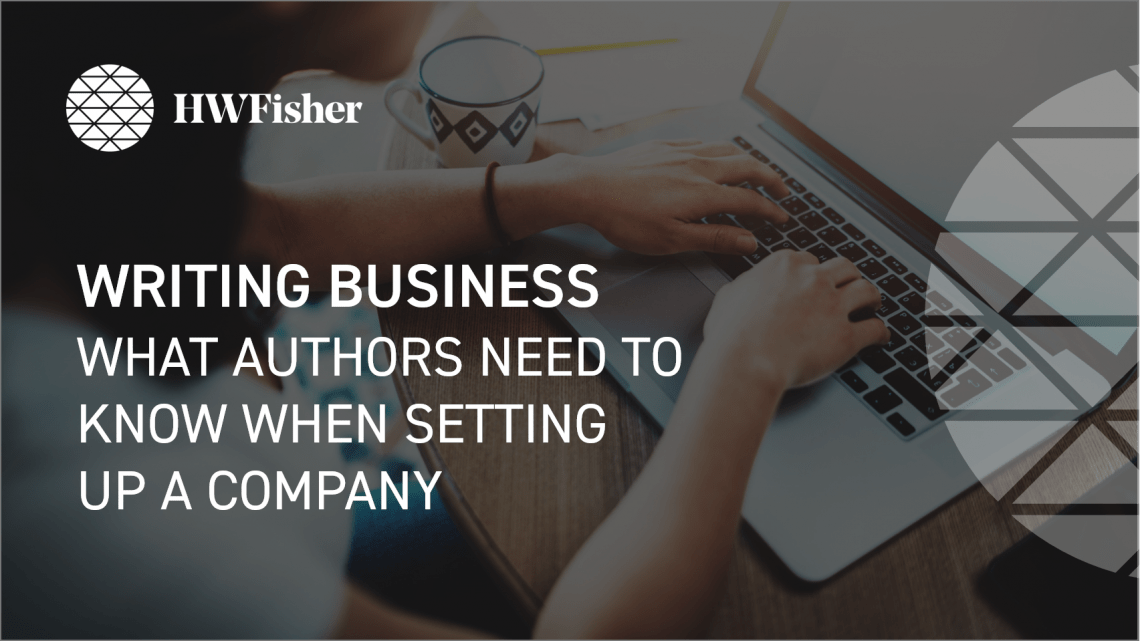
Many authors operate through limited companies but are they always necessary and beneficial? Here we take a look at the latest tax implications, to help you make the right decision.
The first thing to consider is the likely level of annual income. Income Tax is payable by individuals on a profit level of up to £50,270 at the rate of 20%, and Class 4 National Insurance is payable at 9%. The corporation tax rate is 19% and the dividend tax rate is 7.5% but the small saving will be outweighed by company formation costs and the additional costs of preparing statutory accounts and corporation tax returns, dividend certificates, operating a payroll and Companies House filings.
It is also important to examine whether authors averaging will apply. Except in the first and last years of an author’s professional activity, the profits of adjoining tax years can be averaged and this can bring the tax rate down. On profits above £50,270, the income tax rate is 40%. An author making a profit in one year of £15,000 and of £85,000 in the next, will have profits averaged out to £50,000 in each of these years, thus avoiding the higher rate. Averaging can be claimed by all authors creating their own copyright.
Where profits are much higher and are made within a company, the corporation tax rate is still 19%. Advance royalties amounting to, say, £500,000 will be taxed at this rate and the remaining profits can be taken out by way of dividend. Ideally the total income of the author/company owner should be kept to no more than £50,270. Part of this income should usually be taken in the form of a salary in order to preserve and enhance state pension entitlements.
On a profit of £100,000, the various tax liabilities amount to approximately 31% whether operating through a company or not, assuming all profits are drawn out via a combination of a small salary and dividends.
Where profits exceed £150,000 and all are drawn out of a company, the top marginal rate of tax is 50% compared to 47% for an individual. Adding in accountancy fees, the cost figures would be between 53% and 48% respectively.
An important use of a company, therefore, is as a money box from which income can be drawn over a number of years.
Frequently, authors issue shares to spouses, partners etc. so that income can be distributed in the form of dividends. Use can be made of personal allowances and lower rate bands in these circumstances.
Where an individual would be paying Income Tax and National Insurance at a combined rate of 47% and the company pays at 19% there is a considerable cash flow advantage. Profits can be invested within the company for example in property, stocks and shares.
An individual author with profits in excess of £240,000 would be restricted as to the amount that could be paid into a pension. By operating through a company this disadvantage can be overcome.
Important considerations arise where an author is writing/has written a book and might want to put this into a company. If the copyright has been “created”, an income tax liability can arise on its market value where it is assigned to a company. In the situation where there are offers of book deals, TV or film deals , these will need to be taken into account in arriving at the figure on which tax will be payable.
It is generally more tax efficient for the company to buy the copyright as it can claim relief from corporation tax on the purchase price.
Many matters need to be considered when arriving at the market value and these may well come under the scrutiny of HMRC.
Copyright assignments need to be in writing and the advice of solicitors will be needed.
If the company is no longer required, it can be liquidated. The assets for distribution will need to be valued, including any copyrights. A corporation tax liability will generally arise. Often the flow of royalties declines over the years and values fall accordingly.
Where an author operates through a company and there are no substantial savings or investments, the shares are likely to qualify for Business Property Relief (BPR) for Inheritance Tax purposes once they have been held for at least two years. In many cases the IHT liability will be nil. Providing the company continues to trade, IHT liabilities for future generations of shareholders can also be nil.
A professional author’s estate will also qualify for BPR as long as the author was carrying on the authorship profession in some form up to a date within two years of death.
Future tax changes can mean a rethink on the best course of action. To keep up to date on ongoing development, please get in touch.
For more information or to discuss your own circumstances, please get in touch with Barry.
We’d love to hear from you. To book an appointment or to find out more about our services: